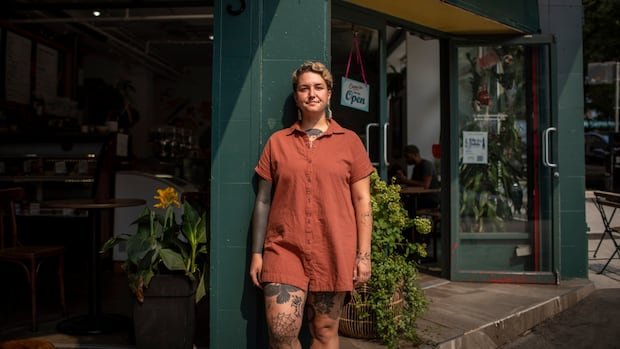In the Capilano Reserve, situated across Burrard Inlet from Vancouver, Shanille Lewis-Winkles, a member of the Squamish Nation, chose to give birth to her sons at her childhood home, where her mother spoke the first words of the Squamish language to them. Lewis-Winkles emphasized that this decision allowed her to embrace her family and cultural heritage during the birthing process.
Opting for a home birth was a deliberate choice for Lewis-Winkles, who expressed that the familiar setting provided the comfort and ideal ambiance she sought for the experience. She shared, “We knew before I was pregnant that I didn’t want to give birth in the hospital. I wanted to be in the home setting. It felt most comfortable and the perfect environment.”
A rising trend among Indigenous women like Lewis-Winkles is the preference for home births, supported by the availability of culturally sensitive care and practices offered by doulas and midwives. This choice also reflects concerns regarding discrimination within British Columbia’s health-care system.
Simone Carriere, an Indigenous doula from Surrey, B.C., often serves as an advocate for clients delivering in hospital settings. Carriere highlighted instances where clients felt disrespected or lacked culturally informed care, emphasizing the role of doulas in safeguarding cultural practices during childbirth.
For those opting for home births, doulas and midwives, such as Carriere, create space for culturally significant practices that may not be accommodated in conventional health-care environments. These practices can include songs, prayers, and ceremonies like smudging, tailored to individual preferences and traditions.
In British Columbia, the Doulas for Aboriginal Families Grant Program (DAFGP) supports Indigenous families by providing funding for doula services. With nearly 600 registered doulas, including 167 self-identifying as Indigenous, the program has enabled over 3,700 pregnancies to benefit from culturally relevant care since its establishment in 2013.
Linda Jones, the program coordinator, emphasized the program’s success in enhancing access to care for Indigenous families, particularly in rural and remote communities. Beyond pregnancy and childbirth, doulas play a crucial role in assisting new mothers through the postpartum phase, ensuring continuity of care and offering resources for physical, mental, and cultural well-being.
Indigenous midwives like Moss Gibson, affiliated with Huckleberry Midwives and Strathcona Midwifery Collective, provide culturally competent care to Indigenous communities, including those from remote areas seeking safe and representative care in urban settings. Gibson emphasized the desire of some clients to bring childbirth back to their communities, whether on reserves or in safe home environments that prioritize comfort and personalized care.
For Lewis-Winkles, the multi-generational tradition of birthing at her childhood home holds deep significance, with her children marking the fifth generation to be born in that setting. Reflecting on her experience, she expressed a willingness to relive it, underscoring the importance of trusting one’s body and instincts in the birthing journey.


